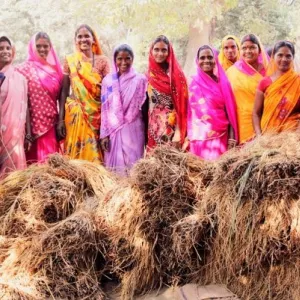Rice residue burning trajectories in Eastern India: Current realities, scenarios of change, and implications for air quality
The Bihar State Government is aware of the risks associated with increasing agricultural burning, but the current extent of the practice and plausible scenarios of change have not yet fully informed state policies. The emergence of burning as a “locked-in” problem without simple solutions in Northwestern Indo-Gangetic Plain (IGP) highlights the importance of preventative action aimed at avoiding burning in

Rice residue burning trajectories in Eastern India: Current realities, scenarios of change, and implications for air quality
The Bihar State Government is aware of the risks associated with increasing agricultural burning, but the current extent of the practice and plausible scenarios of change have not yet fully informed state policies. The emergence of burning as a “locked-in” problem without simple solutions in Northwestern Indo-Gangetic Plain (IGP) highlights the importance of preventative action aimed at avoiding burning in the Eastern IGP rather than attempting to reverse the practice only after it is broadly adopted.
Rice residue burning occurs from October to December in the Northwestern Indo-Gangetic Plain (IGP), significantly contributing to poor regional air quality conditions during the fall and winter months. In the late fall period when regional air quality is at its nadir, rice residue burning contributes to as much as 42% of the fine particulate matter (PM2.5)—the most damaging air pollutant to public health. Other estimates for Delhi, suggest that fires contribute a range, depending on the method, of 7.0%–78% of the maximum observed PM2.5 enhancements (i.e. pollution levels above an anthropogenic baseline) during the post-monsoon burning season.
Estimates suggest that PM2.5 alone causes as many as 16 200 premature deaths annually in New Delhi, while also contributing to a host of additional acute and chronic public health concerns ranging from respiratory infections to lung cancer. Residue burning also increases greenhouse gas emissions while degrading soil health and the production potential of agricultural systems.
While the practice of rice residue burning is pervasive in the dominant rice-wheat systems of the Northwest IG, it is much less common in these same cropping systems in the Eastern IGP region of India (i.e., the states of West Bengal, Bihar, and adjacent areas of Uttar Pradesh).

